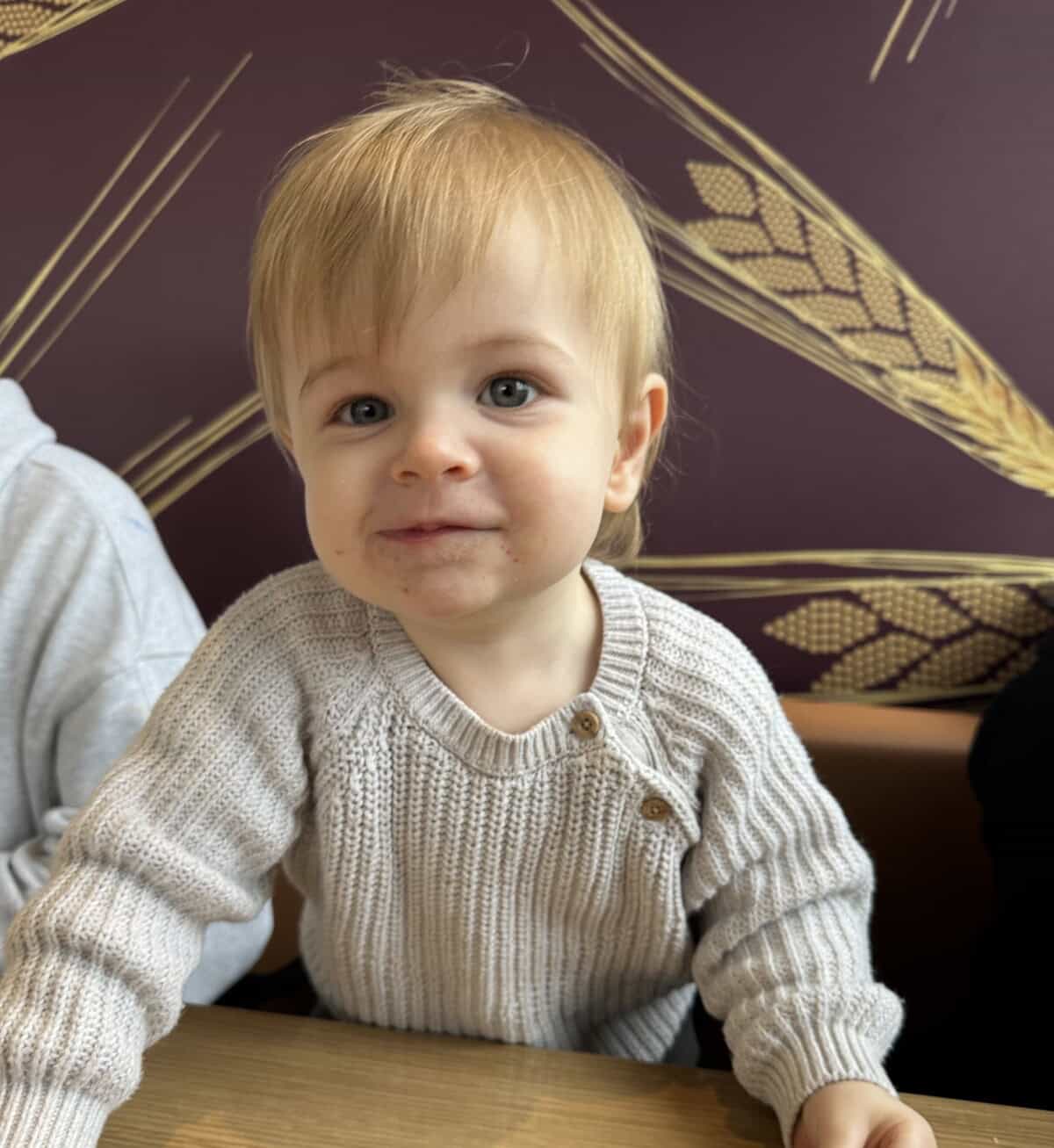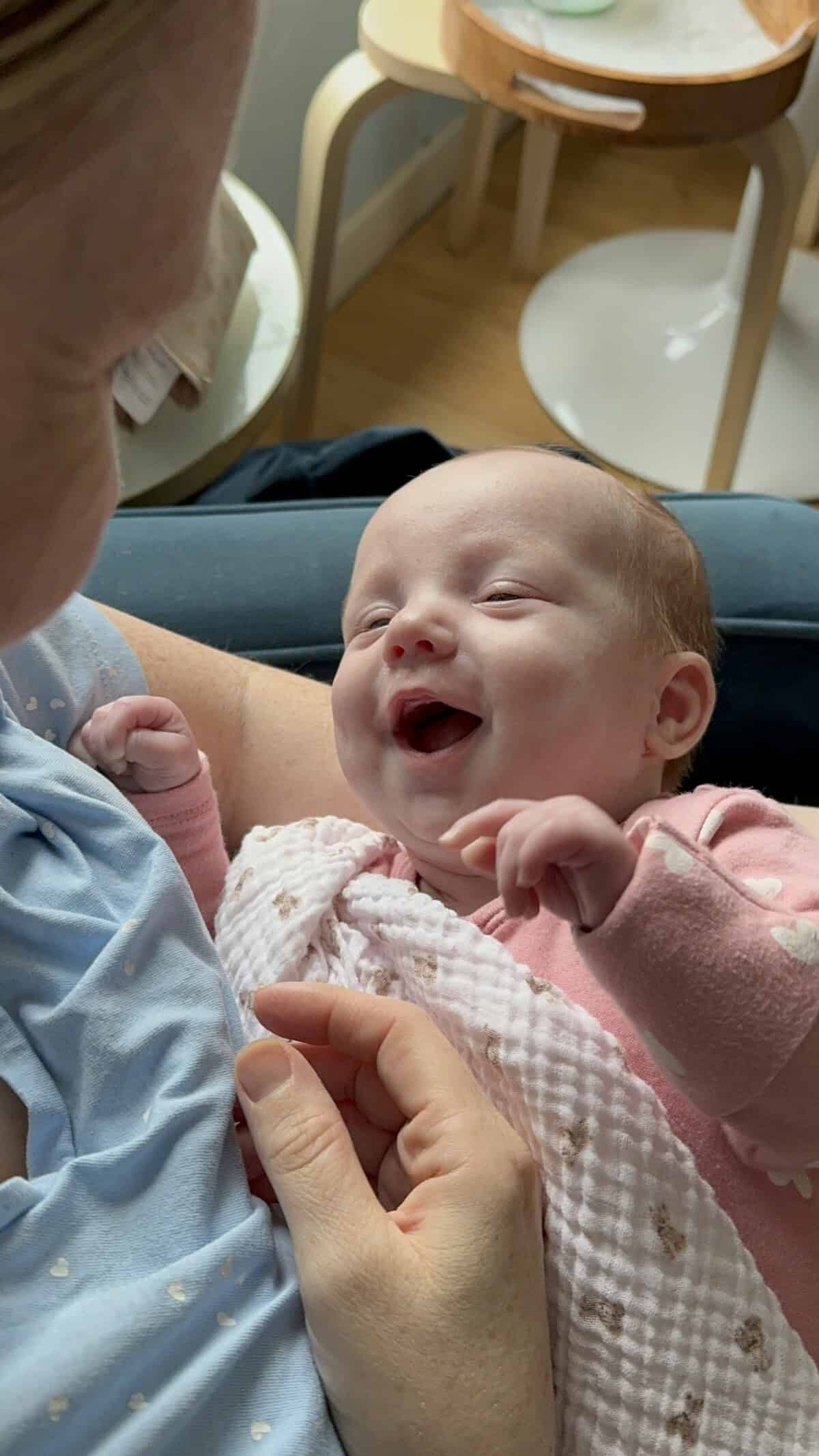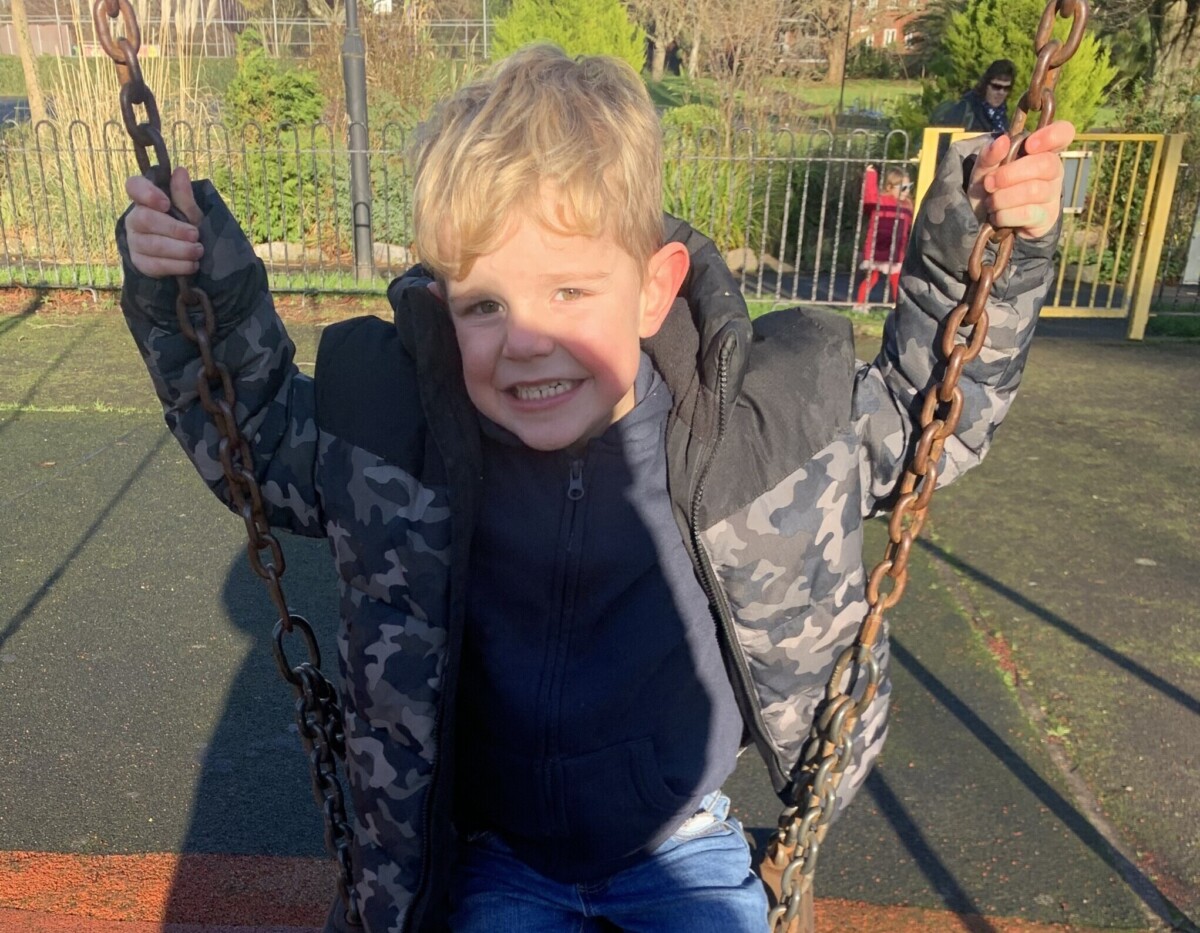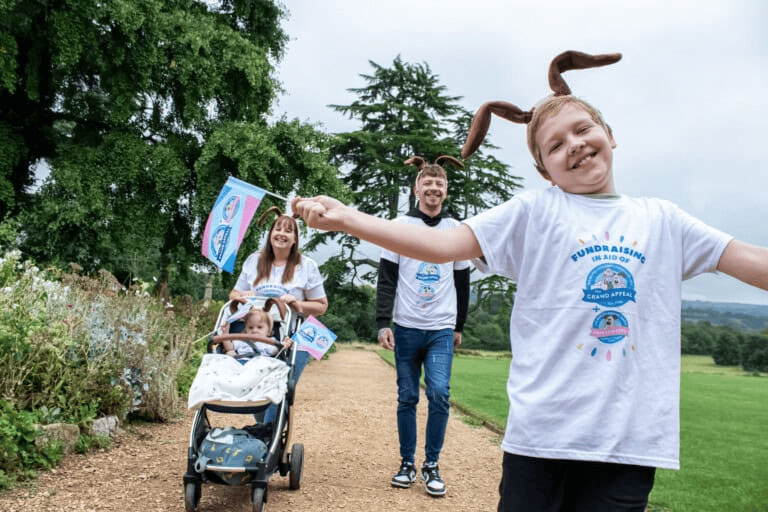When Harry was just 18 months old, he was shot in the head with an air rifle in what became a nationally-followed case. He fought the odds, with a 1% chance of survival, and came out the other side a miracle. Eight years later, Harry is fundraising for the hospital that saved his life – and his dad, Ed, tells us his story.
“Eight years ago, Harry was shot in the head as a baby in an attack that made news across the country. For everyone reading it, it was a horrible story – but for me and Amy, Harry’s mum, it was the worst time of our lives.
After being shot, Harry was rushed to the Emergency Department at Bristol Children’s Hospital. Mike Carter, Consultant Neurosurgeon, came straight over to us and told us that Harry was in a critical condition – and that he might not wake up. He explained the extent of the injuries Harry had, with the bullet lodged in the centre of his brain. There was a 1% chance that Harry would pull through. Having to sign that piece of paper to consent to the operation, knowing he might not come around from it, was the hardest thing I’ve ever had to do. I just broke down.
They took us up to the operating theatre, where Harry was already unconscious because the Air Ambulance team had to put him into an induced coma to save him. I gave him a kiss on the forehead before he went in. He was so cold.
We were then taken to the quiet room in the Paediatric Intensive Care Unit (PICU), and it felt like time stood still. Amy was sat with me, still covered in Harry’s blood from where she’d held him.
I couldn’t tell you how long we were in there – it could’ve been minutes or hours, it all just blended into one. But some of our family had arrived by that point to be with us, so we just sat in that room in shock and silence, waiting.
Harry came out of surgery, and we went to see him on PICU. His face and head were all swollen, his head was wrapped in bandages and had he had wires going in and out of him. His face was so distorted, he didn’t look like my little boy.
From that moment, I didn’t leave his bedside. I didn’t take a break to eat, drink, anything. I just held his hand and hoped he’d open his eyes, wake up, anything to show me he was still in there.
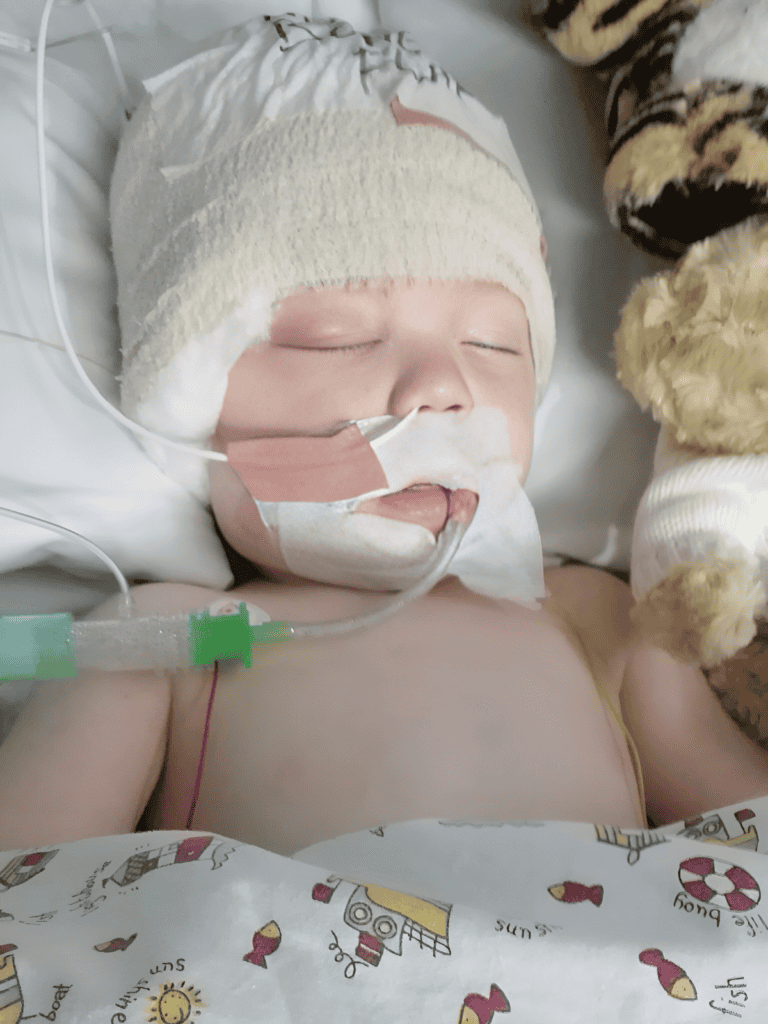
But, after nine days in a coma, I felt a tiny squeeze from one of his hands. My first thoughts were, ‘He’s there. My boy is still in there.’ Just a few days after that, he was taken off the ventilator because he could breathe on his own. His eyes opened for the first time. It was the biggest relief I’ve ever felt.
Ed, Harry’s dadAt this point, we didn’t know the extent of his brain damage or his injuries. He was still heavily sedated, swollen, bandaged up – but at least I knew Harry was there.
After a few more days on PICU, we were moved to the High Dependency Unit to assess his abilities and then on to Bluebell Ward – the neurosurgery ward which treats brain injuries. We had to go back to square one and reteach everything – walking, talking, eating. The first thing I tried to feed him was yoghurt, which went everywhere, but he was trying, and I was so proud.
Our time on Bluebell Ward was a rollercoaster. We had hurdles to pass that we’d never even considered, and lots of hard work ahead of us, but it was also the most amazing ward with the best people in it. Harry made some great memories. His bay was filled with gifts and cards from all over the world, he got to decorate it however he wanted, and he even met Mr Tumble.
Ed, Harry’s dadThe staff on Bluebell Ward became our family. I hold them all in such high regard because what they did, not only supporting Harry but supporting us, was just incredible.
There were evenings where Harry was crying in pain, which made me cry because I felt so helpless, and they’d take me away for a breather while a nurse comforted Harry. They did such a good job at looking after the whole family, not just their patient.
We made friends with the staff, the other parents and patients on the ward – when you’re there for that long, you do build a support network around you. The older patients doted on Harry and it became a home. Harry didn’t really remember any different, so to him, it was home for a long time. Places like the sensory room, funded by The Grand Appeal, gave us the space to go somewhere calm and quiet and different. He loved to lay on the mats and watch the lights above him.
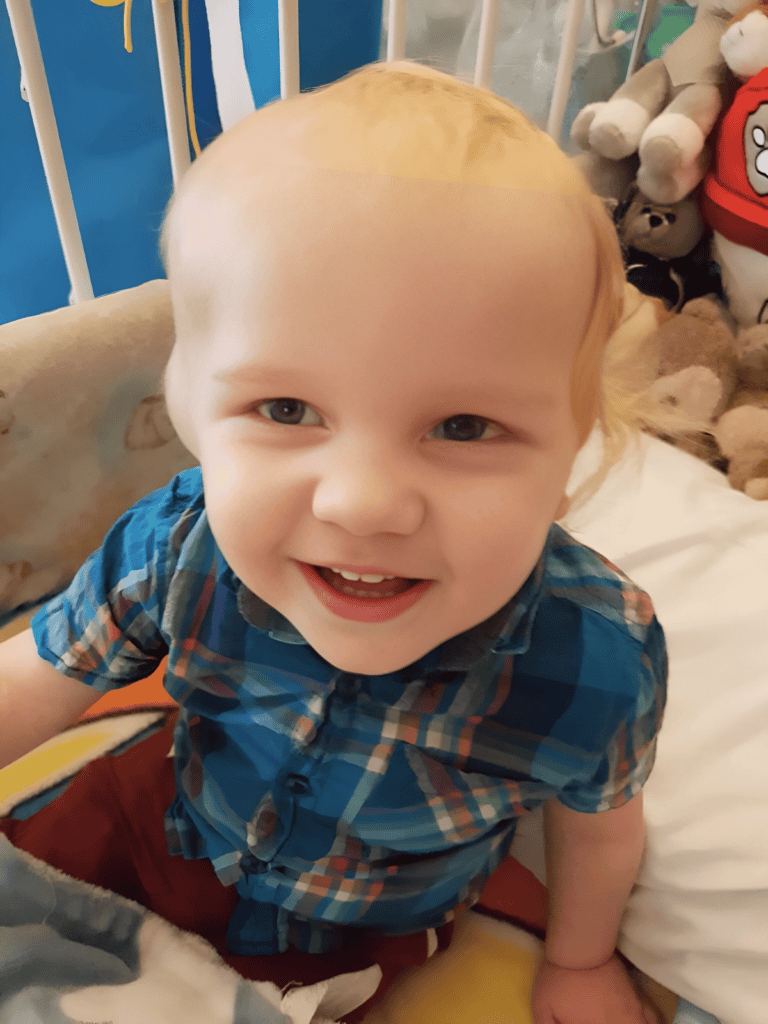
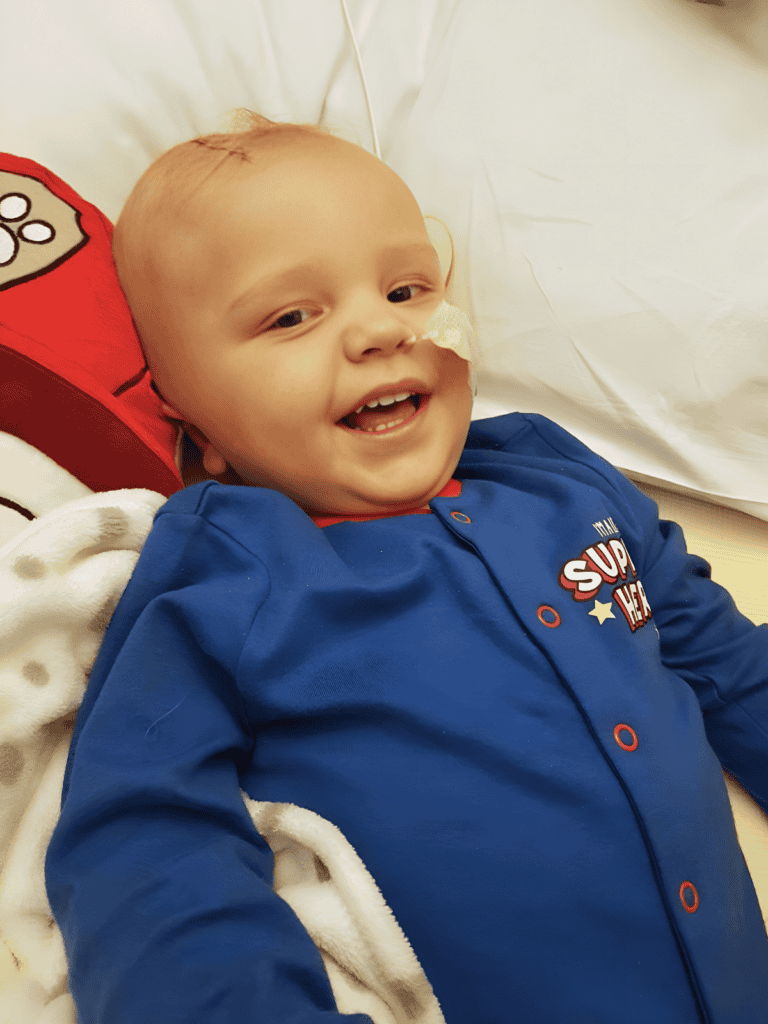
The rehabilitation was really tough – each thing we were reteaching him, we never knew how far we could take it and how much he’d be able to relearn. But the Harry he is now is the Harry we know and love.
Ed, Harry’s dadThe support we had was phenomenal.
Since the attack, I’ve been campaigning to get air rifles licensed in England and Wales, meaning there are tighter restrictions around buying them. We’ve already successfully made them safer with trigger locks, storage rules and more safety and information around using them.
It’s small steps towards a bigger change – because I never want another child to go through what Harry did.
Grand Walk
On 15 September, Harry and I are taking on Grand Walk. We’re really looking forward to it, but it will be a challenge for Harry. His injuries have caused epilepsy and permanent paralysis down the left side of his body, so his mobility is limited and he tires out quite quickly. With Harry’s limitations, 5km is a long way to walk. He’s only recently stopped relying on his wheelchair for longer distances, so this is a huge challenge – but he’s determined to help other children like him.
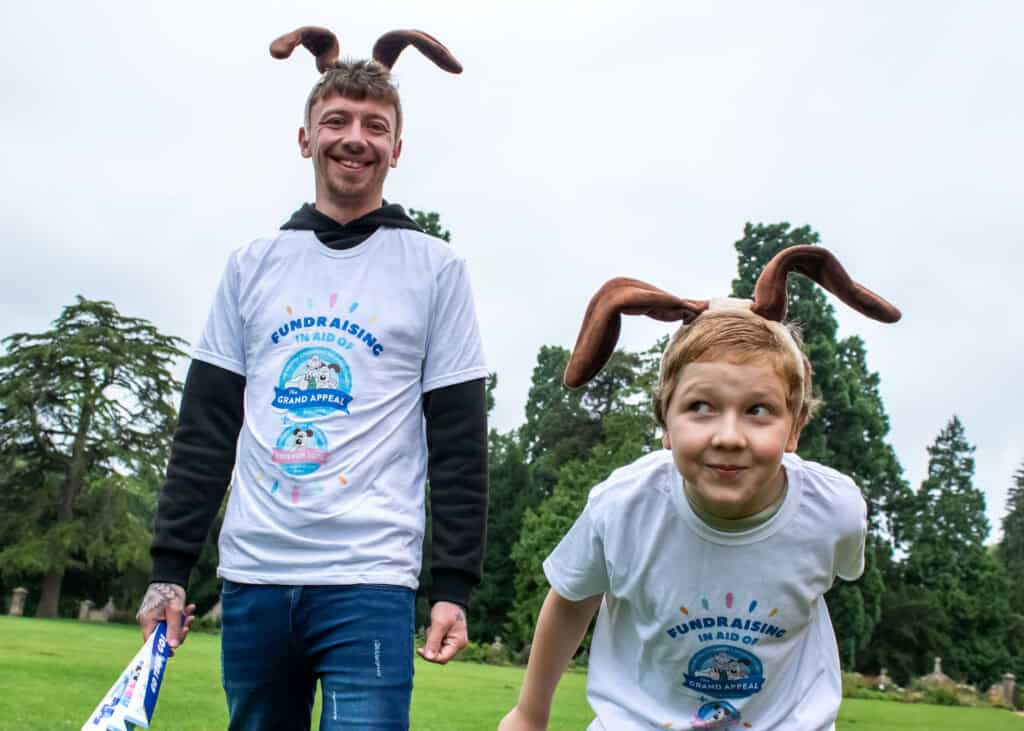
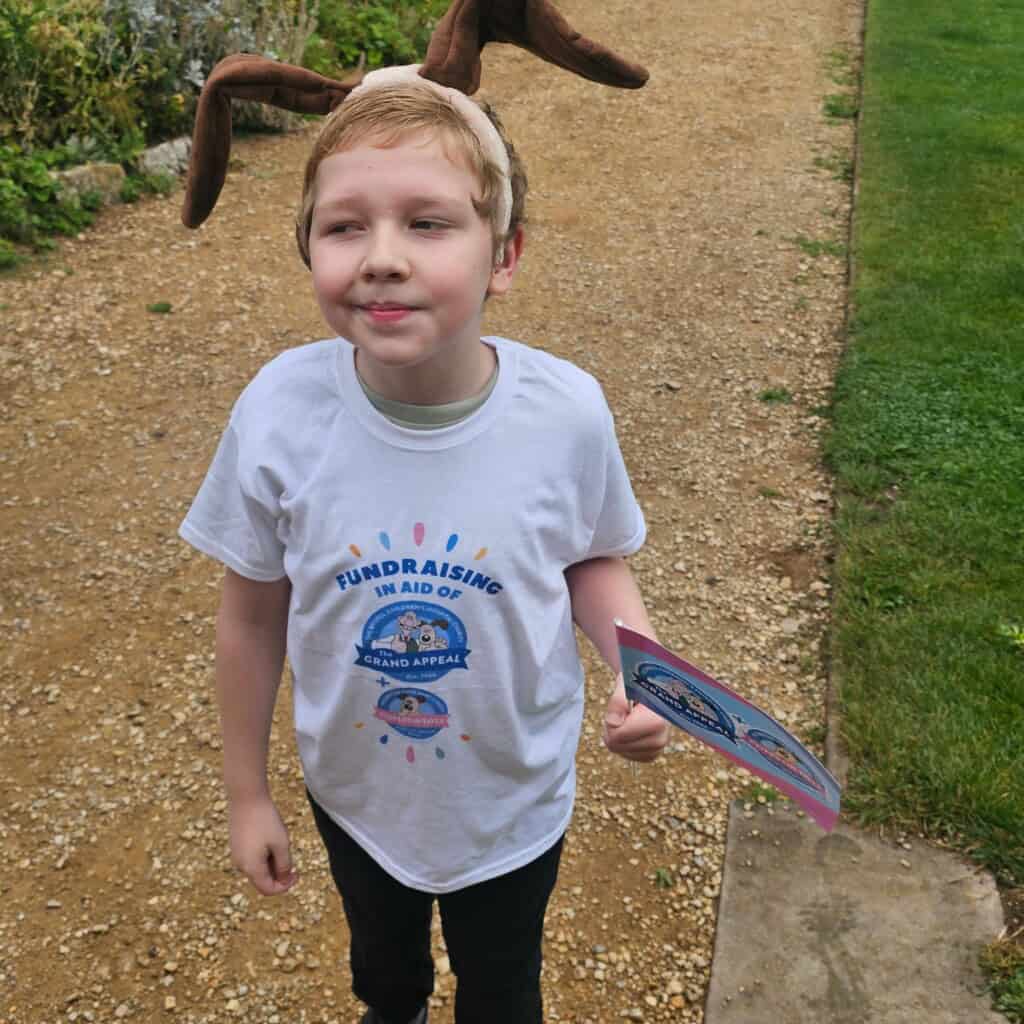
When I asked him how he’s feeling about it, he said he’s ‘so excited’. We took part in a photoshoot with The Grand Appeal to help advertise Grand Walk and it was such good fun. He got to wear a pair of Gromit ears and to see where we’d be going – it really helped get him ready for the challenge.
Through Grand Walk, Harry has already raised over £6,000 which we’ll be using to help other children on Bluebell Ward. That can look like toys and games, medical equipment, research and innovation – whatever it is the ward and its families need.
We’re asking people to help us raise as much as possible for Bristol Children’s Hospital. If you can spare anything, please donate towards our fundraising page.
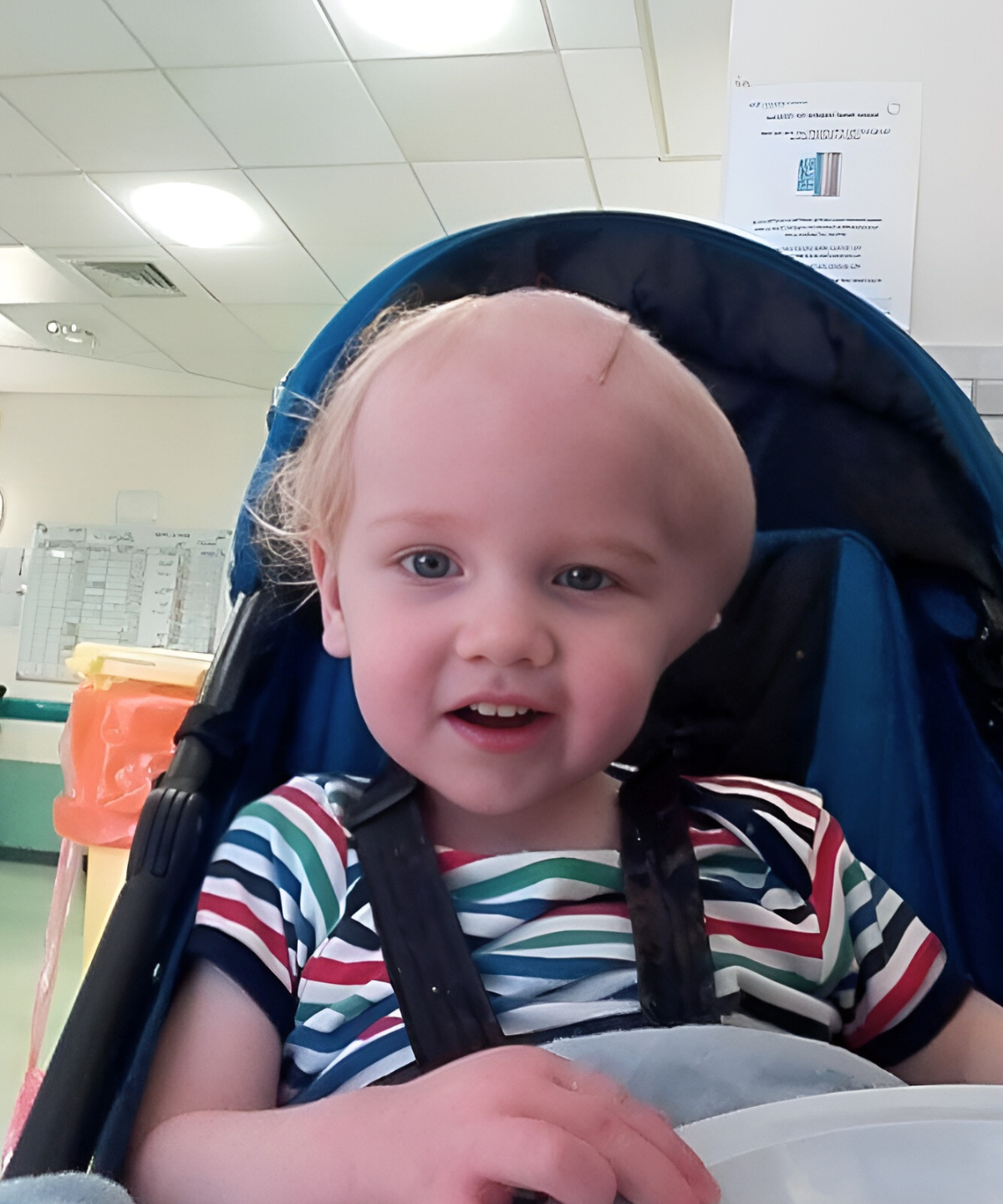
Support Harry’s challenge
Help Harry smash his fundraising goal and support other very sick children.
We were given that 1% chance of survival and Harry took that and just ran with it. He could’ve so easily been part of the 99% statistic, but he fought every single day. He still fights, eight years later, with the impact his injuries have had on him, but he never lets it dim his light.
He’s the happiest, funniest, most energetic kid you could meet, and I can’t wait to see where he goes from here.”
